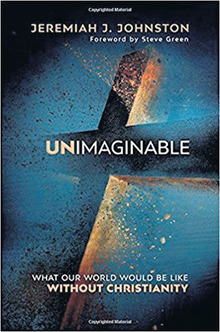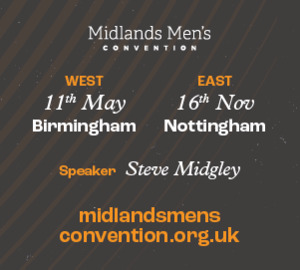Better off without us?
In our contemporary Western world there are a number of high-profile authors and speakers who are extremely vocal in their proclamation that the world would be a better place if religion, and especially Christianity, had not existed.
Brian Talbot, Minister, Broughty Ferry Baptist Church, Dundee

UNIMAGINABLE
What our world would be like without
Christianity
By Jeremiah J. Johnston
Bethany House. 236 pages. £8.99
ISBN 978 0 764 231 377
They are usually strong on rhetoric but often present a very limited basis of evidence for their claims. Dr Johnston, President of the Christian Thinkers Society, a Resident Institute at Houston Baptist University in the USA, has particular expertise in the academic study of the New Testament and Apologetics He seeks to provide the evidence base on which such claims can be tested.
His book is divided into three parts. ‘The World Before Christianity’, then ‘The World Without Christianity’ and ‘The World With Christianity’. In the first section he covers a sense of the divine, draws attention to the fact that the historical evidence points to religion drawing people together and the probability that monotheism preceded polytheism, and concludes that our sense of the divine ‘drove us towards civilisation, law, morality and ethics’. He highlights with helpful examples the fact that the world before Christianity was characterised by suffering, fear, inequality and bondage. second In the section, possibly the most powerful for this reviewer, he addresses the significance of the contributions of a series of prominent atheists who have had a profound influence on the modern world, whose ideas prepared the ground for the horrific violence, mass killings and totalitarian regimes of the 20th century. The final section reveals the transformative power of the Christian gospel in the first centuries of the modern era and then, more briefly, the impact of the Christian contribution to society in contemporary America.
Arguments demolished
It is an engaging book, easy to read, with plenty of helpful illustrations of the points the author is making. It is a historical text explaining ‘what happened’ rather than a theological book explaining the gospel. Reading this book might help prepare the ground to invite a friend as a follow up to explore the convictions of Christians that led them to act in these ways in history. The book’s aim is to demolish arguments against the credibility of the Christian faith and it does this well. One does not have to agree with all the opinions of the author to find this book a useful apologetic tool.


